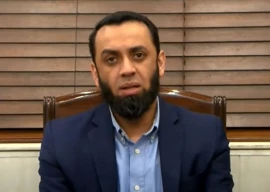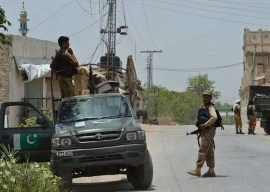Let us see what typical pattern a small business follows from conception to its peak and, eventually, disintegration.
As elsewhere in the world, a private business is usually conceived and initiated by one or sometimes two or three individuals. They take up an idea or a project and act as all-rounder until they reach a stage where they can afford to hire outside help. However, this outside help is employed to perform only specific, skilled, semi skilled or unskilled functions. The management and control of the business invariably remains totally in the hands of the founders or their brothers, sons or other family members.
Barring extraordinary setbacks, the business, over the years, acquires success and visible prosperity for the founders. They may branch out into a few units either based on the types of business, or different functions of the same business eg manufacturing, marketing, domestic, or foreign trade etc. Typically, in our country these units or functions are always controlled by the family members, irrespective of their ability or suitability.
Another typical feature observed in Pakistani companies (even among those organizations that branch-out overseas), is that the number of these units or subdivisions, somehow, is directly proportional to the number of family members available to control them. Delegation of power does take place but never beyond a very safe limit.
Sadly, after this point, cracks start appearing in the organisation and eventually disintegration takes place. The organisation, which took-off impressively, starts breaking into smaller units. The smaller units (those that survive the break-up) then seem to enter the same cycle of growth as the mother organisation, and history starts repeating itself once again.
This is the stage where they should actually consolidate and explore bigger avenues for growth. To illustrate the point we look at some examples in conventional fields, which are not based on high technology.
McDonald’s fast food was founded by one man with one outlet. Mainly through effective and efficient management, it has turned into a worldwide network of thousands of profitable branches or franchises. So far local brands have not been able to emulate this except with limited success. Take Bundu Khan for instance. The branches we see are not branches but independent ‘splinter groups’.
In the final analysis, it is the attitude and approach of the top management of an organisation, which is ultimately responsible for its success and integrated growth, or the lack of it. Although external factors also play a role especially in our country.
One of the major factors that inhibit organisational growth in Pakistan is insecurity. Businessmen are afraid of losing their business if they allow outsiders to acquire too much power. Most of the small and medium businesses have to, out of necessity, keep substantial part of their business secretive. Not always because their intentions are bad, but because they do not have any legal recourse in case somebody tried to exploit them. That threat comes from both the competition and the authorities. Lack of protection for brand names and copyrights (not for foreign brands but local ones) is one such area. Therefore, a fundamental need for the growth of small and medium business in Pakistan is access to a transparent justice system which can provide the security of ensuring that contracts are honoured (cheques too!), and business ethics in dealing amongst themselves as well as customers, is ensured.
Looking at the internal causes that hamper growth, our cultural outlook is an important factor too. Somehow, the feudal mentality and colonial grandeur are very deeply rooted in our psyche. Many businessmen start viewing their business as literally their ‘kingdom’, some even start considering their employees as their personal property. ‘Monarchy’ is going out of fashion in business just as in politics because it is not good for business.
When the head of one of the largest hotel chains in Pakistan [Hashwani] was asked what he felt was the biggest reason for his success and his organisation’s greatest strength, his reply was, “Our employees.”
The contributor writes on socioeconomics and has a background in trading and exports in the private sector.
Published in The Express Tribune, March 5th, 2012.
COMMENTS (16)
Comments are moderated and generally will be posted if they are on-topic and not abusive.
For more information, please see our Comments FAQ
1719315628-0/BeFunky-collage-(8)1719315628-0-405x300.webp)


1731329418-0/BeFunky-collage-(39)1731329418-0-165x106.webp)





1731771315-0/images-(3)1731771315-0-270x192.webp)







@Billoo Bhaya
Please forgive @ZYX. He seems to suffer from myopia.He sees things 'bottom up' or 'upside down. That's why he is 'ZYX' and not 'XYZ'.
@ZYX: I am a Pakistani living in Lahore. Why do you accuse me or for that matter anyone of being an Indian or a Hindu, or a Jew or a someone of another planet, if they show you the truth. Maybe if you had read the Truth in your life you would not accuse someone for your own failings.
@Billoo Bhaya: It also has to do with the tradition of charity in Muslim families. If you look at wealth of even rich families in Pakistan and I believe punjabi families in India, there is a strong tradition to take care of people of kin and even arrange for dowry and marriage expenditures for children of servants. It is true that in many cases, there is abuse as well, but the general trend over all is this that anybody in the family surroundings needs to be taken care of. That's why gini-index of Pakistan shows relatively lower financial resource discrepancies between different strata of society. This practice while noble leads leads to a lot of financial leakages, which makes for less than an ideal ruthless business model.
In our society, our parents, our educational system, and the society around us raise and influence us to become naukars or naukari pesha. Risk is something to be avoided at all costs. With so much timidity rammed into the little brains ("don't do this, don't do that"), it is no wonder that we are not natural risk takers and want the security of jobs with their predictable salaries. People who start businesses take tremendous amount of risk; imagine having to deal with corrupt government bureaucracy putting hurdles in your success, bhatta mafia who wants their 'right' for allowing you to operate your business, various other extortion gangs, and you can imagine why some seths do not trust outsiders.
Most Pakistanis like to take short cuts to success; look at the traffic to understand how people are always ready to cut in front of you instead of doing things in orderly and disciplined manner and this explains the basic nature of Pakistanis. In their short cut to success, most people do not think much of defrauding their employers who provide their livelihood and are willing to cheat them. A seth who has started his business with his khoon paseena is afraid of being cheated by his employees. Hence too many seth companies.
Dawoods of Engro are an exception in that they have brought in professional outside management, given them a stake in the success of the business, and made them partners in success or failure.
Muslims must learn the lessons from the Arab trade caravans. Imagine trekking the desert on camel back from Madina to Syria and back. There is no short cut to success.
In Pakistan the first lot of Adamjees, Valikas, Saigols, Dawoods have lost the punch. The new lot of Manshas, Sharifs, Chaudhrys, etc. are enjoying the taste of new money. For how long is the question?
@Billoo Bhaya: In general, Muslims of South Asia and elsewhere are not mercantile-minded. They have remained too preoccupied with politics, religion, or trivial non-issues to devote energy to building business empires. Further, Muslims do not have natural aptitude or inclination for business. More of them want safe, secure jobs with predictable salaries, even if they are performing below their potential. Which is unlike the case for Memons, Gujratis, and other trading castes and communities.
Pakistanis have not focused on building brands and businesses built to last, because of their myopic view. Westerners think about establishing institutions and Chinese think in 1000 year spans.
i have believe that establishing business is more toward establishing trust. i unfortunately saying this that we are hypocrite in our doing. we always go for short term solution and full of selfishness.we for get the accountability concept which are religion teaches us. Actually it is universal concept which apply all aspects of our lives
The write mention about the insecurity of business, if in security is such a big factor than why the Indian have business from several year. i believe they had face same kind of insecurities in the past in now as well. i can see a long list of indian business where doing great.
would hamdard be such an example? must have been more than a 100 years for them since back in the day in india pre-partition
@Usman: No I did not. Esmail Habib was an employee in the firm of Khoja Mithabani Nathoo, a leading metals dealer that was established in Bombay in 1841. Habib did not go on his own until 1921 as "Habib and Sons". In 1941 they dropped the Sons and became Habib with the incorporation of the Habib Bank in Bombay. Rest of Habib history is known to everyone.
@Billoo Bhaya: What you are saying is painful but true....
@Billi Bhaya ...I think your forgot Habib group ? :)
If I may add that Muslim family characteristics have failed to produce a business model, or a brand name that has lasted for more than a couple of generations. I have looked at all Muslim countries to see if there is any corporate entity that was incorporated a 100 years ago and that still exists under Muslim managment. The only example I could find is Compagnie Universelle du Canal Maritime de Suez, for short Suez Canal Company formed by Ferdinand de Lesseps in 1858, with a majority ownership by French investors and remainer owned by Khedive Said Pasha of Egypt. The Suez Canal Authority which now administers the Canal came into being after Nasser's nationalization in 1954. Other than this no other Muslim owned company exists or has lasted this long. Indians like Tata and Birlas have been around for over 100 years and like them many in the UK, EU and USA can still trace companies that have existed for over 150 to 200 years.
Trust is main reason they don't involve outsiders. You can't trust Pakistanis to not rob you silly.